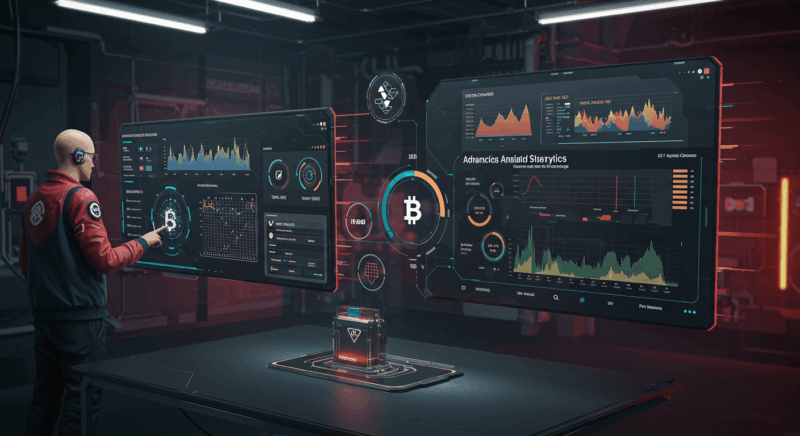
Finland is not only known for its pristine forests, clear lakes, and legendary sauna culture. In recent years, the country has become a true pioneer in the field of modern technologies.
Whether it’s digital government processes, sustainable energy solutions, or international startup successes – Finland demonstrates how consistently a society can focus on progress. This is not only driven by technological ambition, but also by a deeply rooted sense of community that strives to make innovations accessible to everyone.
This technological pioneering role is evident in many areas of life:
- The government operates largely paperlessly
- Schools rely on digital learning methods
- Cities are developing intelligent transportation systems
- And even leisure activities are increasingly moving into the virtual space
Finland is thus more than just digital – it is living the future in everyday life.
Digital Society and Modern Services
Finland is considered a model for the implementation of digital government. Almost every government service can be completed online – from tax returns to starting a business. The digital ID card enables secure online identification and is accepted by both government agencies and private companies.
Public trust in the systems is also high. Clear data protection regulations and transparent processes create a digital environment that offers citizens real convenience. In practice, this means less paperwork, shorter waiting times, and more flexibility.
The high level of digital affinity is even evident in leisure time. Streaming services, online gaming platforms, and even legal gambling offerings are seamlessly integrated into everyday digital life. Visit the official site of the best Finnish online casinos to get an impression of how user-friendly and secure digital entertainment is in Finland.
What is still considered a vision of the future elsewhere has long been part of everyday life in the far north: a digital system that works – for everyone. Education and research as technology drivers
The foundation for Finland’s technological progress lies in the education system. It promotes creativity, critical thinking, and the use of digital tools at an early age. Modern learning platforms are already in use in schools, tailoring teaching content to individual needs and specifically strengthening digital skills.
At universities, technology is not only taught but actively developed. Institutions such as Aalto University and the VTT Technical Research Centre work closely with companies and government agencies. The focus is on key technologies such as:
- Artificial intelligence
- Robotics
- Sustainable energy technology
- Data and cybersecurity
Numerous research projects are developed in partnerships with industry, ensuring that innovations find their way directly into practice. This close integration of theory and application makes Finland a tech hotbed whose solutions are recognized worldwide.
Sustainable high-tech in everyday life

Technological progress in Finland not only means greater efficiency, but also greater responsibility for the environment and society. The high standards of sustainability are reflected in many areas of daily life – often with the support of innovative technologies.
In cities like Helsinki and Espoo, mobility concepts are being implemented with autonomous buses, electric taxis, and intelligent traffic flows. Smart traffic light systems and app-based transport services ensure fewer traffic jams and lower CO₂ emissions.
Finland is also breaking new ground in the energy sector. Modern heating networks, smart electricity meters, and digital control systems are already turning many households into small, networked energy centers. Such technologies not only help save energy but also balance fluctuations in the power grid.
Innovations are often very tangible in everyday life:
- Waste separation with sensor-controlled collection stations
- Buildings that self-regulate their energy consumption
- Apps that display water consumption in real time
Finland is thus proving that technological modernization and environmental awareness are not mutually exclusive – on the contrary: Here, they go hand in hand.
Start-up culture and global tech brands
In recent years, Finland has developed into one of Europe’s most exciting startup hotspots. Young technology companies find ideal conditions, particularly in the capital region around Helsinki: well-developed infrastructure, a high quality of life, and targeted government support.
Programs such as Business Finland and the public-private innovation fund Sitra support founders with advice, capital, and networks. At the same time, an open culture of failure ensures that even risky ideas are given a chance.
Finland previously gained worldwide recognition through technology brands such as Nokia, which dominated the mobile phone world in the 1990s and 2000s. Finnish companies have also established themselves in the digital entertainment industry: Rovio (Angry Birds) and Supercell (Clash of Clans) are among the most successful game developers worldwide.
A key event in the Finnish startup scene is the Slush conference, which attracts thousands of founders, investors, and tech visionaries from all over the world to Helsinki every year. This isn’t just a place for presentations and pitches – it’s also where ideas, partnerships, and real future projects emerge.
The result: a diverse, fast-growing innovation landscape that views technology as both an export commodity and a social resource.
Digital Leisure and Online Trends
In Finland, a large part of social life has long been taking place online – not only in everyday working life, but especially in leisure time. People use digital offerings naturally and in a variety of ways: from streaming and e-sports to virtual events and social gaming.
The broad acceptance of new digital platforms is particularly striking. Social networks, online libraries, and public broadcasting media centers are firmly anchored in everyday life. Even small communities are investing in digital cultural offerings – for example, with virtual museum tours or online concerts.
The gambling industry also embraced digitalization early on. Finnish online casinos are subject to government regulation and set standards for transparency and player protection. The focus is not only on entertainment value, but also on responsible integration into digital leisure culture.
Trends such as augmented reality, virtual reality, and interactive live formats are being systematically developed further. They create new worlds of experience and demonstrate how closely technological innovation and social openness are linked in Finland.
Conclusion: A tangible future
Finland demonstrates how modern technologies can be used effectively in almost all areas of life – efficiently, sustainably, and socially integrated. From digital administrative services to smart urban development to innovative startups: The Far North proves that progress doesn’t have to remain a buzzword.
What many countries are still planning has long been a reality in Finland. The result is a technological culture that isn’t developed in isolation, but is firmly anchored in people’s everyday lives – and that’s precisely why it’s so successful.












